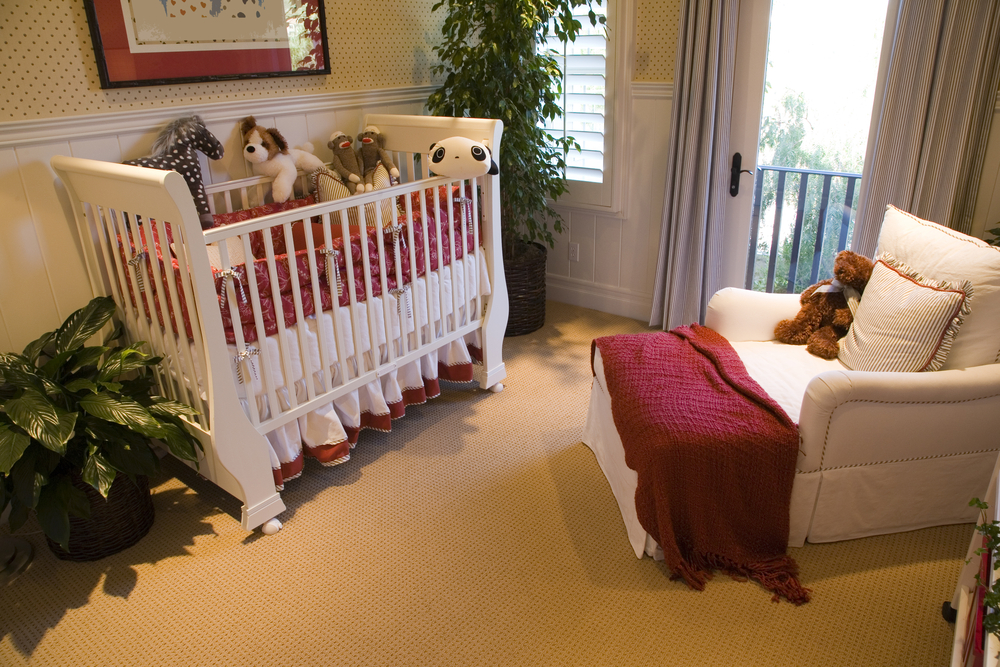When the 2013 USDA report on the financial costs of parenthood declared that the average-middle-income American family spent close to a quarter-million dollars to raise a child to the age of 18, the figure was considered so fascinating, it was widely discussed in the news.
Many of these discussions mistakenly interpreted the report to mean that it actually took a quarter-million to raise a child well. They didn’t see that the report merely stated what parents actually spent.
Parents, in fact, have been raising their children very well on very little, for ages. You can do so, too. For instance, here’s how you can save money raising your baby in the first year alone – you simply need to understand that you don’t need to buy everything that corporate advertisers seem to think you should.
You don’t need to rebuild your home
According to the USDA report, a third of the quarter-million figure goes to providing housing. From setting aside a large room and blowing thousands on turning it into a nursery, to moving into a larger home, parents tend to set themselves up for a great deal of unnecessary expense. Babies can’t tell the difference between a regular room and a nursery, though. Even once they do begin walking after their first birthday, babies are completely happy in a small space – to a tiny two-year-old, the smallest home can look positively huge. You can save tens of thousands by staying on in a small home with no special nursery.
Just don’t buy so much
Parents do manage to raise their children very well with just a few necessities. If you’re not sure whether to buy an item or not, apply the grandmother test to it: if your grandmother wouldn’t recognize an item, it’s probably unnecessary. For whatever you do need, you must always make sure to visit SumoCoupon or another well-supplied coupon resource for discounts.
For instance, use cloth diapers
While your grandmother would probably recognize disposable diapers (they’ve been around since the 50s), they were a novelty then that most mothers saw as an unnecessary luxury. While moving to washable cloth diapers does involve regular close encounters of the smelly kind with soiled diapers each day, it’s a move that environmental experts recommend. Such a move also will also save you around $1,000 in disposable diapering supplies.
Canned baby food is a terrible idea
Little bottles and cans of baby food with cute names may seem tempting on store shelves. They can never be as good as fresh, homemade stuff, though. Baby recipes are absurdly easy to make. You simply need to steam a vegetable, purée it with formula or breast milk and feed your baby. It takes no time at all.
Don’t buy things before you know you need them
It can be easy to assume that your child will need all the essentials that stores sell for babies – strollers, swaddling supplies and so on. Not every baby accepts being put in a stroller or being swaddled, though. Assuming that your baby will have regular tastes can lead to much wasted money. It’s a much better idea to make purchases when you are sure that your baby will accept them.
Buy multipurpose items whenever you can
If you need to buy a crib, picking a model that can work both at home and outside as a travel crib can help you save money – you won’t have to buy two items. There are many items that you can combine into one purchase to save money.
Finally, buy used whenever you can
You can save hundreds on clothing your baby if you buy used. There’s no embarrassment necessary – parents have borrowed clothing for the children from friends and family forever. Babies don’t mind it, either – they can’t tell the difference between used clothing and new stuff.
Russell Matthews has a passion for money management. After shifting his accountancy career to working from home to be a stay-at-home dad, he has especially enjoyed writing about everyday household money challenges from homeownership to caring for kids. You can keep up with Russell on Twitter.
Earnest Parenting: help for parents who want to cut costs.


